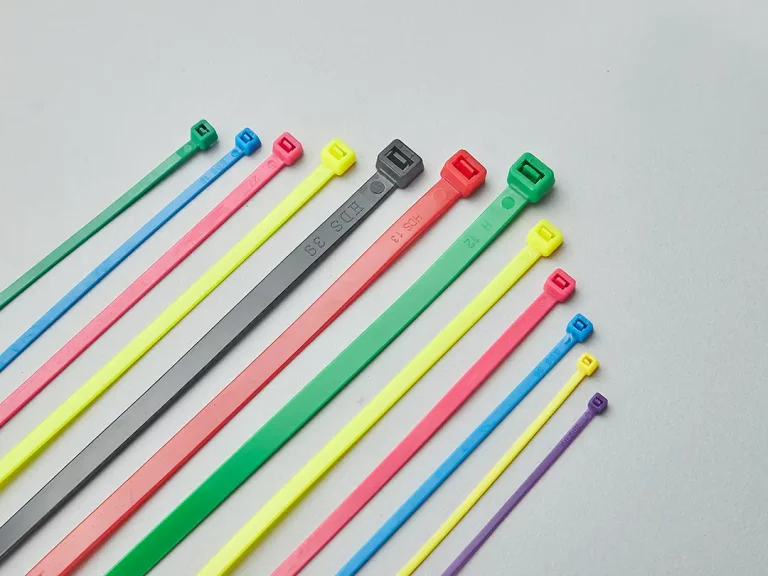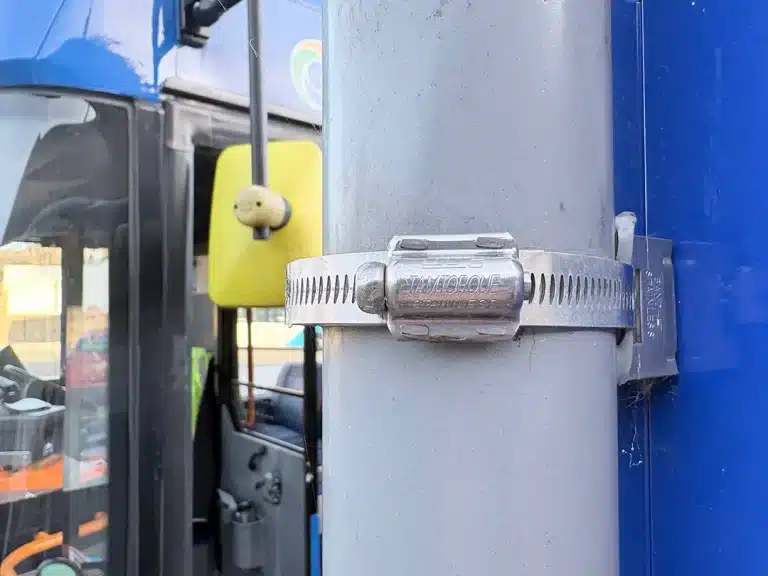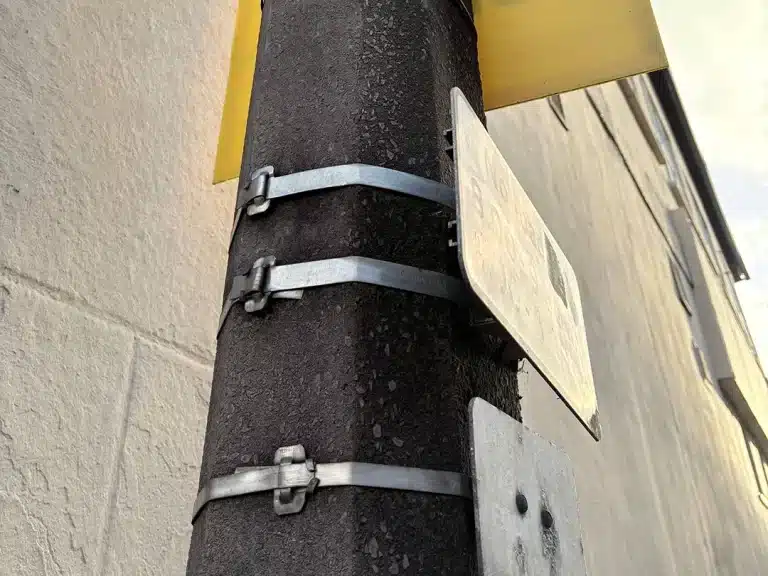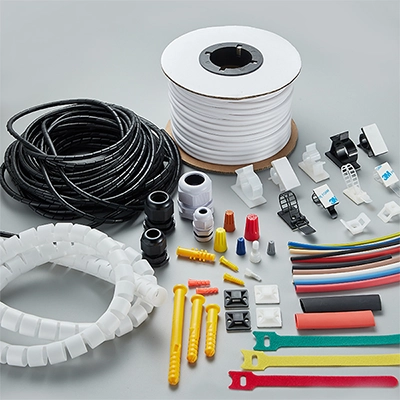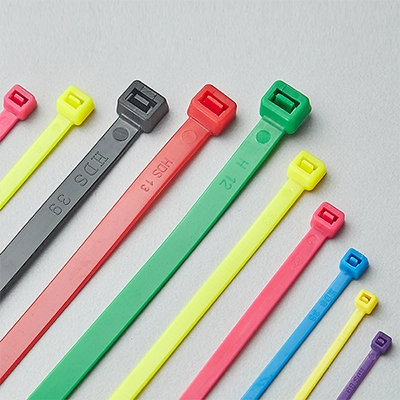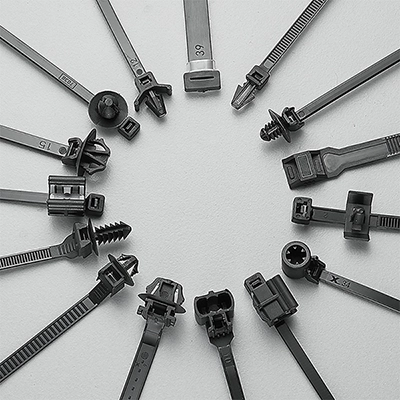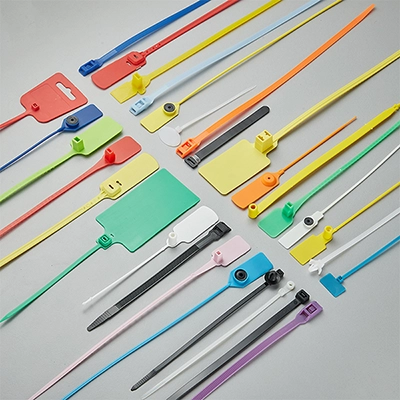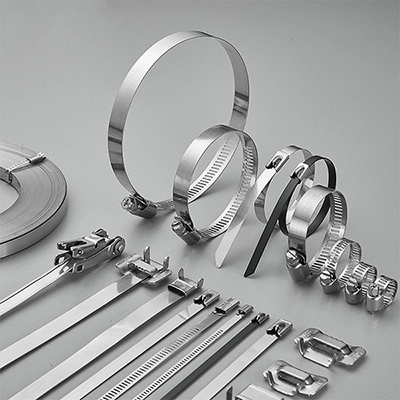Metal zip ties and nylon zip ties are the two most common types of cable ties. Nylon cable ties, made from PA66, are widely used because they’re inexpensive, come in many sizes, are easy to use, and offer good insulation. However, when higher strength, heat resistance, or corrosion protection is needed, metal zip ties become a better option.
So, when exactly should you use metal zip ties instead of nylon ones?
Why Choose Metal Zip Ties?
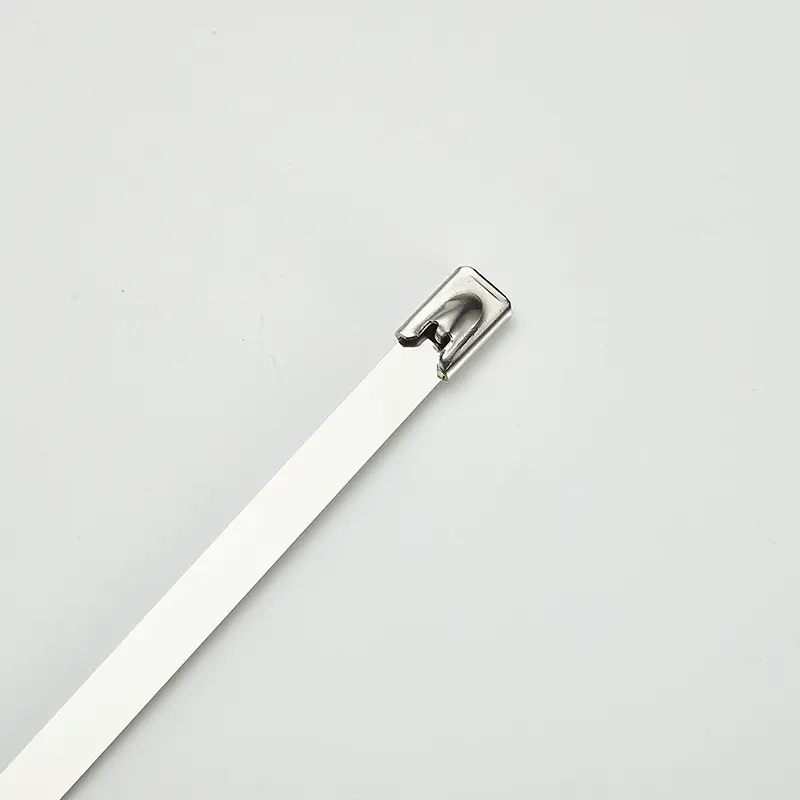
1. For Heavy Loads or High Tension
Metal zip ties offer significantly higher tensile strength than nylon ones — often starting from 100 kg and increasing to much higher values, depending on the model. They are ideal for securing heavy equipment, high-pressure pipelines, or cable trays. Common use cases include industrial machinery, marine applications, and mining.
2. For Extreme Temperature Conditions
Nylon zip ties usually work between -40 °C and 100 °C. Even heat-resistant versions top out at 150–180 °C and can’t withstand long exposure to such extremes. Metal zip ties, for example, stainless steel 304, however, can handle -80 °C to over 500 °C. They’re perfect for boiler rooms, welding shops, or any place with intense heat where nylon might soften, crack, or fail.
3. For Coastal or High-Humidity Environments
Nylon ties tend to degrade under long-term UV exposure, rain, or salty air. Stainless steel zip ties (especially 304 or 316 grade) resist corrosion and weathering much better. That’s why they’re widely used in outdoor power installations, telecom towers, solar panel frames, ships, and coastal infrastructure.
4. For Fire-Sensitive or Flame-Rated Areas
While nylon cable ties can be flame-retardant, they’re not fireproof. In high-heat or fire-prone environments, they may still ignite. Metal zip ties are naturally fire-resistant, making them suitable for cable management in subways, rail systems, tunnels, airports, and other facilities with strict fire-safety codes.
5. For Projects That Require Long Life and Low Maintenance
In long-term setups like bridge lighting, city surveillance systems, or overhead cable installations, nylon ties may need regular replacement. Metal zip ties last much longer and stay in place for years with minimal upkeep — ideal for “install once and forget” scenarios.
Conclusion
While nylon cable ties are sufficient for most everyday bundling needs, metal zip ties offer a safer and more reliable solution in tough environments, such as high heat, humidity, corrosion, or heavy loads.
Choosing the right tie material doesn’t just affect short-term performance; it also impacts long-term reliability. Before starting a project, always consider both the environmental conditions and performance requirements.
If you’re unsure which type of cable tie is right for your application, feel free to reach out — we’re happy to help with tailored recommendations based on your specific use case.
